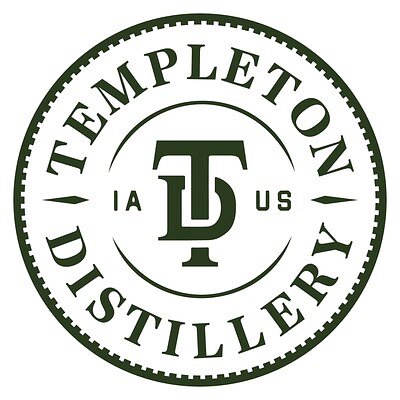
From Bootlegging Roots to Boutique Rye: Templeton Distillery Stakes Claim in Premium Whiskey Market
Iowa’s Templeton Distillery is betting on place – and patience – with its new single barrel rye, a move reflecting the broader trend of craft distilleries emphasizing origin and quality in a competitive market.
From Bootlegging Roots to Boutique Rye: Templeton Distillery Stakes Claim in Premium Whiskey Market
Templeton, Iowa – In a market flooded with craft spirits, Templeton Distillery is doubling down on its heritage and a commitment to quality with the release of its new single barrel rye whiskey. The distillery, tracing its roots back to the Prohibition era, is leveraging its unique Iowa origin story and a long-term investment in in-house distillation to carve out a niche in the increasingly competitive premium whiskey segment.
For Templeton, the launch isn't just about another bottle on the shelf; it represents a strategic evolution from sourcing whiskey to crafting it entirely in-house. The distillery, acquired by spirits company Infinium Spirits several years ago, initially relied on sourced rye. This new single barrel offering signifies a commitment to control the entire process, from grain to glass.
“The shift to in-house distillation wasn’t quick, or cheap,” explains a source close to Infinium Spirits. “It required a significant investment in equipment, expertise, and, most importantly, patience. Aging whiskey takes time, and they were committed to doing it right, even if it meant waiting several years to bring a product like this to market.”
A Legacy of Resilience – and Rye
Templeton’s story is steeped in local lore. During Prohibition, the town of Templeton, Iowa, became known as a haven for bootleggers, producing and distributing high-quality rye whiskey. While the historical details are shrouded in myth, the story provides a compelling foundation for the modern distillery’s brand identity.
“The local connection is hugely important,” says a Templeton resident and long-time supporter of the distillery. “It’s more than just a marketing story; it’s woven into the fabric of our town. People here take pride in the distillery and its commitment to preserving that history.”
The Rise of ‘Local’ in a Global Market
The focus on local origin aligns with a broader trend in the spirits industry, as consumers increasingly seek out authentic, handcrafted products with a strong sense of place. This shift is driven by a desire for transparency, traceability, and a connection to the producers and the land.
“Consumers are becoming more discerning,” notes a beverage industry analyst. “They want to know where their spirits come from, how they’re made, and what sets them apart. ‘Local’ isn’t just a buzzword; it’s a key differentiator in a crowded market.”
The single barrel rye exemplifies this trend. Templeton sources its grains from local Iowa farms, emphasizing the quality of the ingredients and the importance of supporting regional agriculture.
Infinium’s Strategic Play
The acquisition of Templeton Distillery by Infinium Spirits wasn’t a random move. Infinium has a history of identifying and nurturing craft distilleries with strong potential, adding them to a portfolio that includes Hangar 1 Vodka and Bluecoat American Dry Gin.
“Infinium’s strategy is about building a collection of premium brands with unique stories and high-quality products,” explains a source within the company. “Templeton fit perfectly into that model. They had a compelling brand narrative, a strong local following, and the potential to become a major player in the rye whiskey category.”
By investing in Templeton’s infrastructure and expertise, Infinium has enabled the distillery to scale up production while maintaining its commitment to quality. This is a crucial balance, as craft distilleries often struggle to meet demand without sacrificing their standards.
The Flavor of Iowa
The new single barrel rye is distinguished by its bold flavor profile, characterized by notes of caramel, vanilla, and spice. The distillery attributes this unique character to a combination of factors, including the quality of the Iowa-grown grains, the careful distillation process, and the extended aging period.
“We’re not trying to replicate a Kentucky bourbon or a Canadian rye,” says a distillery representative. “We want to create a whiskey that is distinctly Templeton, a reflection of our terroir and our commitment to craftsmanship.”
The distillery is also exploring innovative aging techniques, such as using different types of oak barrels and experimenting with unique finishes, to further enhance the flavor profile of its whiskey.
Challenges and Opportunities
Despite the positive momentum, Templeton faces challenges in a highly competitive market. The premium whiskey category is crowded, and consumers have a wide range of options to choose from. The distillery must continue to innovate and differentiate its products to maintain its market share.
“The biggest challenge is cutting through the noise,” says a beverage industry analyst. “There are so many new craft distilleries launching every year, it’s difficult to stand out. Templeton needs to continue to tell its story and deliver a consistently high-quality product.”
However, the distillery also has significant opportunities for growth. The demand for premium whiskey is expected to continue to rise, and Templeton is well-positioned to capitalize on this trend. The distillery is expanding its distribution network and exploring new markets, both domestically and internationally.
Furthermore, the distillery is investing in tourism and hospitality, offering tours, tastings, and events to attract visitors and build brand awareness. This direct-to-consumer approach is becoming increasingly popular among craft distilleries, allowing them to connect with their customers and build a loyal following.
Ultimately, Templeton Distillery’s success will depend on its ability to balance tradition and innovation, quality and scale, and heritage and modernity. By staying true to its roots while embracing new opportunities, the distillery is poised to become a leading force in the premium whiskey market, carrying the legacy of bootlegging and the flavor of Iowa to a global audience.
